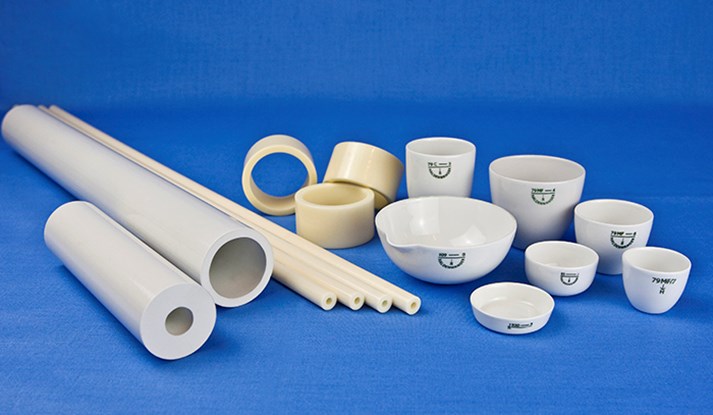
An important development has been reached in the global process industry, with Morgan Advanced Materials believed to be the first manufacturer to introduce specialist food safe laboratory porcelain for food packaging.
Morgan’s range of glazed laboratory porcelain tubes has been awarded food safety approval, according to both US-FDA guidelines and the German standard DIN 51032. The latter is based on the EU guideline 84/500/EWG. This certification guarantees a solubility level of lead and cadmium below standards set by these governing bodies.
Not only does this represent a major breakthrough into the food packaging market for Morgan, but it also offers a lower corrosion alternative to traditional stainless steel and polymer materials, which are currently widely used. Manufactured using Morgan’s proprietary ATP porcelain material, the company’s ceramic tubes are highly resistant to chemical corrosion, which can be caused by caustic soda, a product used to make the surfaces of packaging materials sterile.
The material characteristics of the tube give it a much smoother surface than those manufactured using alternative materials. This, in turn, reduces the risk of damage when the tube enters into contact with food wrapping, while also minimising the risk of particles entering food, which could cause food safety issues. Furthermore, because the glazing is transparent, it does not contain any oxygen pigments which may be considered noxious or harmful.
Morgan’s move to secure food safety certification follows many years’ experience using ceramic materials to produce laboratory components, used in the development of creams and pastes for the pharmaceutical sector. This industry also has high requirements regarding prevention of cross contamination in materials being used in demanding environments.
Dr Michael Rozumek, Director of Research and Development at Morgan Advanced Material’s Haldenwanger GmbH site commented: “Corrosive materials are often present in food processing environments and we have long identified a gap in this market to supply a ceramic product with high density levels. The smooth glazing we add to our ceramic tubes gives them greater longevity than any other material available in this market, due largely to our world-leading application engineering and materials expertise, in other sectors such as laboratory materials, which share many of the same concerns as the food industry.”
Morgan is looking to building on this achievement by having its extended product range certified for food safety. This includes the company’s alumina materials, which are produced through casting, iso-pressing and extrusion.

 Industry News
Industry News